Adventurer attempts Antarctic row after heart surgery
- Published
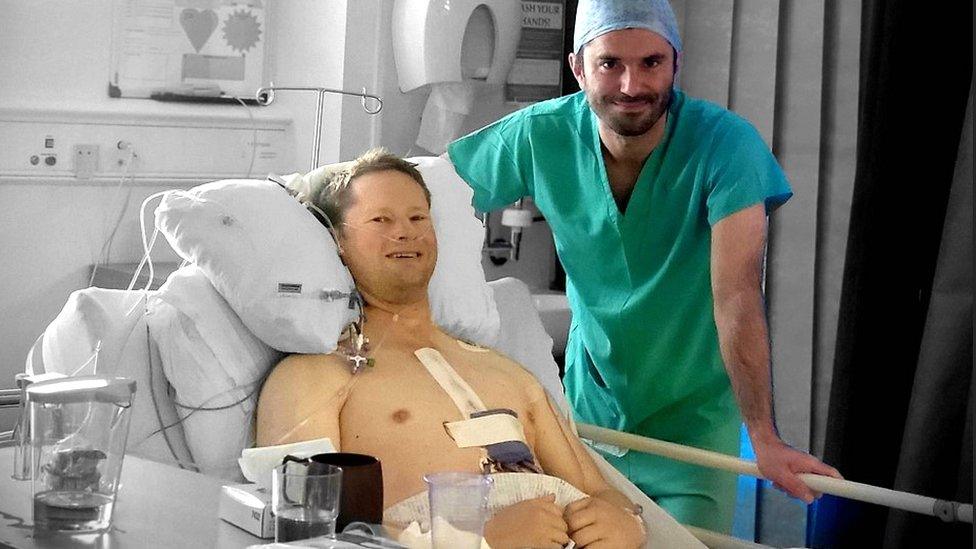
Jamie Douglas-Hamilton was told he only had 12 months to live if he did not have the open heart surgery
A man is to attempt one of the world's most dangerous rows in the Antarctic in honour of the "forgotten hero" of Sir Ernest Shackleton's Endurance voyage - just months after open heart surgery.
Jamie Douglas-Hamilton will row from Elephant Island to South Georgia.
The grandson of the 14th Duke of Hamilton will brave the Scotia Sea - the roughest and coldest on Earth.
He is also calling for the Polar Medal to be awarded posthumously to Harry McNish, the carpenter on Endurance.
McNish was on Shackleton's ill-fated voyage, which ended with the expedition vessel being sunk by pack ice in October 1915.
The group managed to reach Elephant Island and McNish, from Port Glasgow, adapted the James Caird lifeboat to make it seaworthy for the voyage. Some of the crew made it to South Georgia to seek help.
Mr Douglas-Hamilton, 41, from Edinburgh, will be the only Britain in a team of six hoping to row the 950-mile route sailed by the James Caird, which has never been attempted before in a rowing boat.
The adventurer, who is a seven times Guinness World record holder, told BBC Scotland he had read the unpublished diaries of Harry McNish after befriending his great nephew, John McNish.
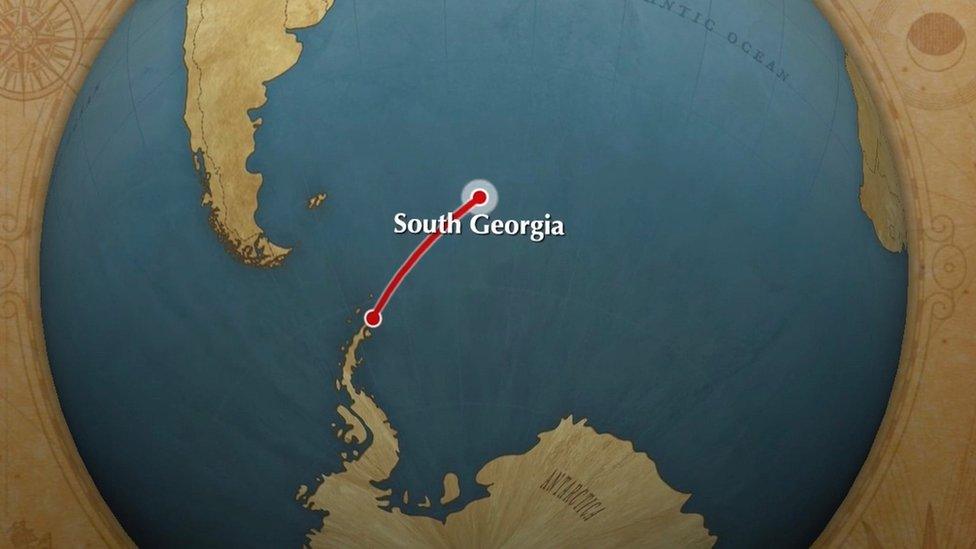
Jamie Douglas-Hamilton will row with a team from Elephant Island to South Georgia in the Antarctic
He said: "I've read all of his personal diary and it is a myth that Shackleton was the greatest leader of all time. The truth is quite different.
"None of the crew would have made it back if it was not for Harry McNish.
"Not only did he build the boat that saved the whole crew with the most limited of tools, but he created the sledges and the crampons using nails from the boat for Shackleton to cross the mountains of South Georgia to the whaling station on the other side.
"Without McNish speaking up to Shackleton on the pack ice, the lifeboat hulls would have been irreparably damaged. He was portrayed as a mutineer but was the real hero."
McNish was denied the Polar Medal.
Mr Douglas-Hamilton said he died destitute in New Zealand, unable to use his hands due to frostbite from the trip.
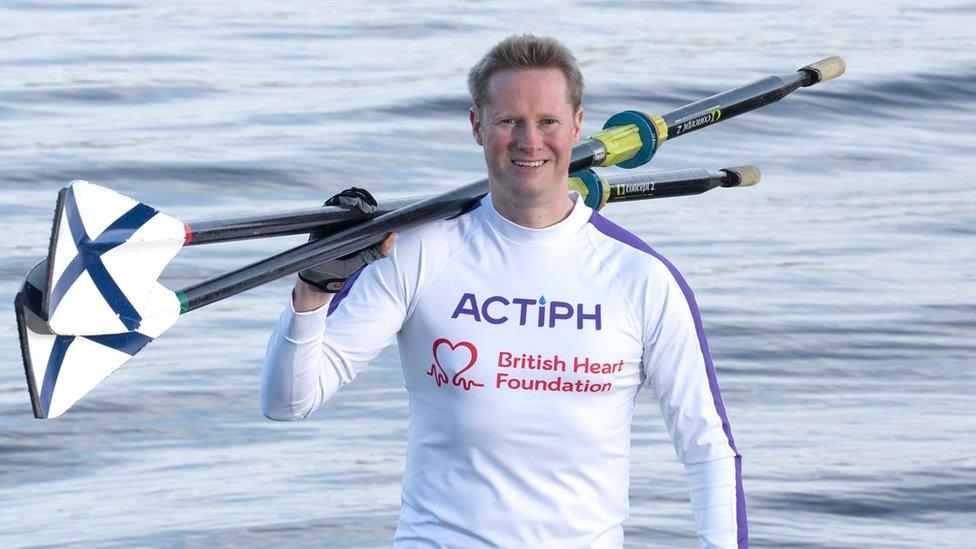
Jamie Douglas-Hamilton is still recovering from his surgery
John McNish, said, "Our family are incredibly touched that Jamie is rowing the treacherous seas of the Antarctic which my great uncle sailed in the early 1900s and that the journey will be made in honour of him.
"Our family is incredibly proud of my great uncle, and we have always believed it to be very unjust that Chippy wasn't given the Polar Medal.
"It is very exciting that this expedition, The Harry McNish Row, will highlight just how brave and courageous my great uncle was."
The trip was originally planned for December 2021 but had to be postponed as Mr Douglas-Hamilton discovered he had a heart condition that he believes would have killed him on the journey.
"I was born with a bicuspid aortic valve where you've only got two valves going to the aorta not three," he said.
He went to the hospital for scans after drifting in and out of consciousness during a cycling race in May and was told he needed immediate open heart surgery.
"I couldn't believe it, I went in there trying to get antibiotics and then had to go through this process, my heart was double the size," he said.
"It had been leaking for 20 years."
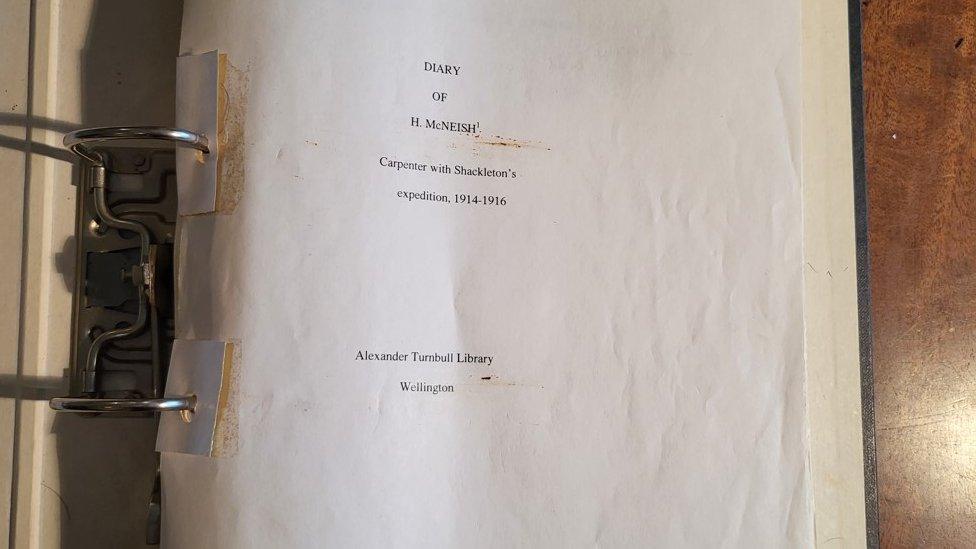
Jamie Douglas-Hamilton has read Harry McNish's unpublished diary
Surgeons replaced the aorta and valve using metal, fabric and a bovine cusp.
It is only in the last week that he has been able to train at full capacity since having the operation in August, which left him unable to even pick up a kettle for the first six weeks.
By the time he leaves for the challenge on 10 January he will only have had five months to recover.
But Mr Douglas-Hamilton told BBC Scotland he was not scared to take on the row, which he is undergoing to raise money for the British Heart Foundation.
He said: "The best thing to do with these things is to throw yourself into the situation and then there is no way of getting out so you have to carry on.
"While you are on the boat you don't have very much time to daydream as you are fighting for every second.
"It's afterwards you look back and think that was pretty scary."
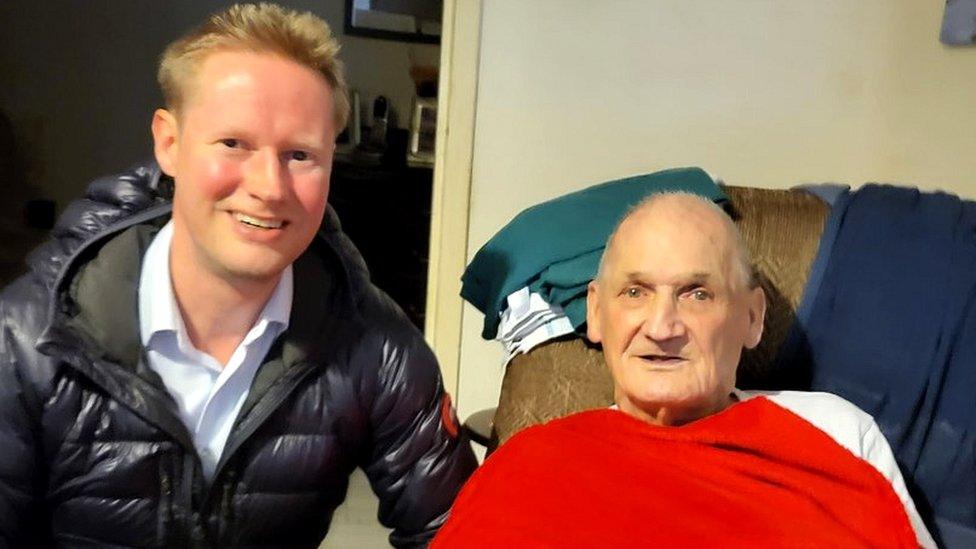
Jamie Douglas-Hamilton with Harry McNish's great nephew, John McNish
Mr Douglas-Hamilton is the only British member of a team of six who will row three at a time in 90-minute shifts around the clock over the course of the journey, which is expected to take two and a half to three weeks.
The boat will be captained by Icelandic explorer, Fiann Paul, who has more than 40 world records.
Mr Douglas-Hamilton knows what is in store for him after completing three other dangerous rowing challenges.
The former East Lothian's Belhaven Hill School pupil - who was previously part of a team which rowed from Chile to Antarctica in 2019, said: "On my last trip a string in my boot rubbed so much it went through to the bone.
"The pain was so bad I couldn't sleep for two days and nights.
"My toes froze and my hands went numb. The carbon fibre boat is in very cold water which you're sitting on and the constant spray and waves mean your are constantly cold and wet with no heaters to dry you.
"The pain you go through is tremendous and I remember feeling in agony."
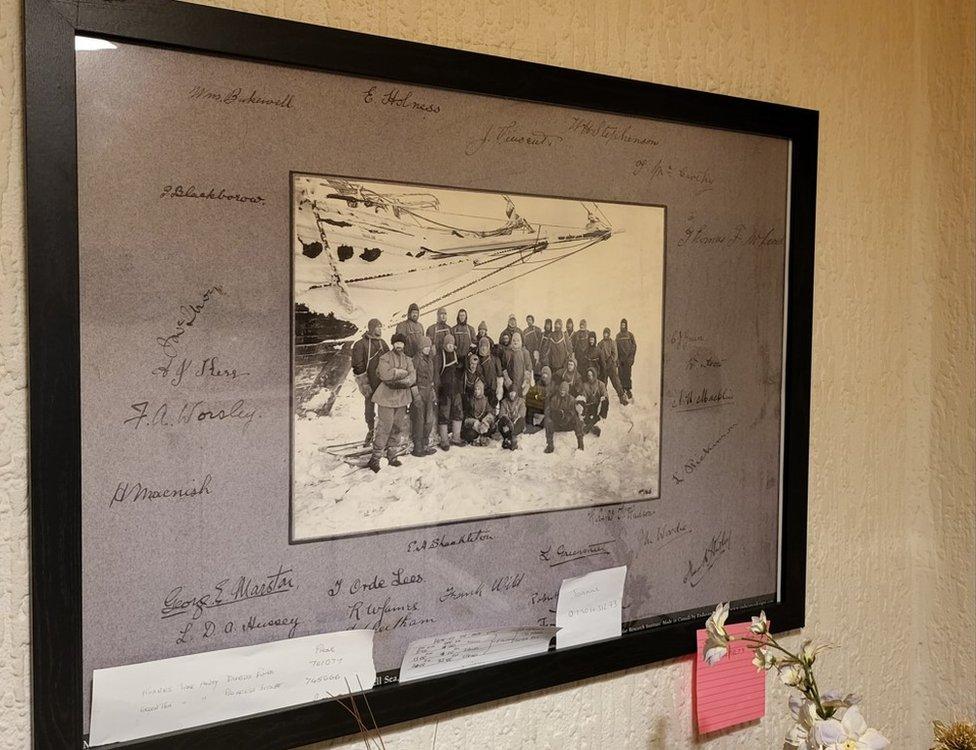
Shackleton's crew
Mr Douglas-Hamilton was inspired by his grandfather, Douglas Douglas-Hamilton, to be an adventurer. His grandfather was the first man to fly over Mount Everest in 1933 in an open cockpit plane.
Mr Douglas-Hamilton said: "I wish I had been born in that time of exploration.
"Most things have been done now although the oceans are the last frontier so that's why I've chosen rowing."
He added: "It does get pretty concerning out there when you're being tossed around like you are in a washing machine. The secret is to trick your sub-conscious mind."
He said his father, James Douglas-Hamilton, a member of the House of Lords as a life peer, and mother were fully supporting him.
He will be leaving the UK on 2 January 2023 from Edinburgh Airport and will meet his crew in Ushuaia, Argentina.